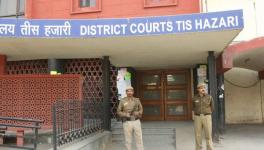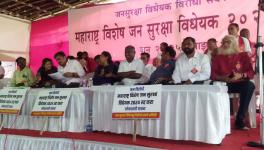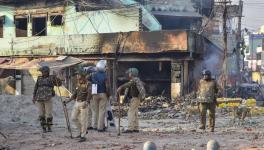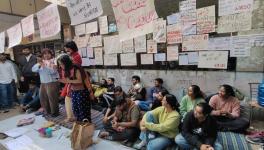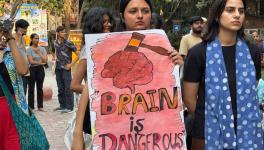Delhi Violence: Court Rejects Pinjra Tod Activist Devangana Kalita's Bail Plea in UAPA Case
New Delhi: A court here has rejected the bail plea of Jawaharlal Nehru University (JNU) student and Pinjra Tod member Devangana Kalita, booked under the stringent Unlawful Activities (Prevention) Act (UAPA) in a Northeast Delhi violence case, saying the allegations against her are prima facie and provisions of the anti-terror law have been rightly invoked in the case.
The court said the pre-planned vociferous agitation in the name of protesting against the Citizenship (Amendment) Bill, coupled with other resultant activities of confrontation and violence leading to riots, would show that it was meant to cause or intended to cause disaffection against India.
Additional Sessions Judge Amitabh Rawat said in a case of conspiracy of such a large scale, not having a video clip was not so vital as generally, a conspiracy, by its very nature, is hatched in secrecy and not having video clips of such a conspiracy was obvious rather than doubtful.
Kalita was arrested in the case for allegedly being part of a premeditated conspiracy behind the riots.
The court, in its order passed on Thursday, said in a case of conspiracy, the presence of an accused at a site is not sine qua non (essential condition) for establishing his or her role.
"In the present case, the presence of the accused is established over a period of time. Thus, on the perusal of the chargesheet and accompanying documents, for the limited purpose of bail, I am of the opinion that the allegations against accused Devangana Kalita are prima facie true," the judge said in his order.
The court said the entire alleged conspiracy, beginning from December 2019 when roads were intentionally blocked roads to cause inconvenience and disruption of the supply of essential services, resulting in violence, and then leading to the February 2020 riots would be covered by the definition of a "terrorist act".
It noted that there was no gainsaying the fact that according to the Constitution, all the citizens of the country have the right and freedom to protest, including the right to oppose any legislation. However, it is not an absolute right, but subject to reasonable restrictions.
"The contention of the counsel for the accused that the sanction was given in haste is not for this court to give an opinion on. What is important is that an independent authority has given its opinion about the applicability of UAPA in the present case," it said.
The court further said even if it took the arguments of the accused's counsel at face value that only one side of the road was blocked, it would still be a complete blockage, preventing ingress and egress of the people who were surrounded and for whom panic and terror was created.
"Hence, the provisions of UAPA have been rightly invoked in the present case," it said.
It said the reliance by Kalita's counsel on video clips or any other material not mentioned in the chargesheet was of no assistance.
In the order, the court said the references to various other persons, who according to the counsel for the accused had allegedly given incendiary speeches in the run-up to the Delhi polls or later on, was not as such germane to the bail application since the court was considering the bail plea of Kalita and not of others, particularly those who are not accused in the present case.
It said February 24, 2020 onward, there was a flurry of calls between the accused and other persons who were not physically present with each other, but which showed a connection between them, and many of them coming together at a place points towards circumstances suggesting a conspiracy.
The court added that a linkage between the accused with other accused persons was shown by the prosecution.
It further said if it looks at the statement of the protected witnesses under section 164 (examination by magistrate) of the Code of Criminal Procedure (CrPC), it finds sufficient incriminating material against Kalita.
Advocate Adit S Pujari, appearing for Kalita, asked why would the accused, being a Hindu, organise violence and riots by instigating Muslims against her own community.
Special Public Prosecutor Amit Prasad, appearing for the Delhi Police, opposed the bail plea, saying Kalita had allegedly conspired with others to gather women protesters from Jahangirpuri, who resorted to violence.
Communal violence broke out in Northeast Delhi on February 24 last year after clashes between citizenship law supporters and protesters spiralled out of control, leaving at least 53 people dead and around 200 injured.
Pinjra Tod (Break the Cage) was founded in 2015 with an aim to make hostels and paying-guest accommodations less restrictive for women.
Get the latest reports & analysis with people's perspective on Protests, movements & deep analytical videos, discussions of the current affairs in your Telegram app. Subscribe to NewsClick's Telegram channel & get Real-Time updates on stories, as they get published on our website.












